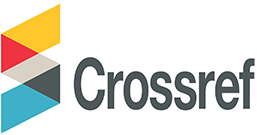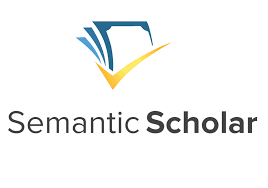Utilizing Ethnopedagogical Resources for Multicultural Education in Azerbaijan
DOI:
https://doi.org/10.69760/aghel.01024075Keywords:
Multicultural Education, Ethnopedagogical Materials, Cultural Appreciation, Educational Policy, Azerbaijan Education, Curriculum DevelopmentAbstract
This study explores the integration of ethnopedagogical materials into Azerbaijan's multicultural educational framework, focusing on their effectiveness in enhancing cultural understanding among students. Employing qualitative methodologies, including interviews with educators, classroom observations, and analysis of educational materials, the research assesses the impact of incorporating local cultural resources into teaching practices. Findings indicate that ethnopedagogical materials significantly improve students' engagement and foster a deeper appreciation for local and neighboring cultures. The integration of these resources not only enriches students' educational experiences but also promotes inclusivity and diversity awareness in classrooms. The study provides recommendations for curriculum developers and policymakers on how to systematically include these materials in national education systems, underscoring the necessity of such integration for fostering societal harmony and cultural continuity.
References
ADALAT, J. S., & RASIM, S. M. (2019). FACTORS INFLUENCING THE FORMATION OF TOURISM SERVICES IN AZERBAIJAN LOCATED ON THE GREAT SILK ROAD AND PROBLEMS THAT NEGATIVELY AFFECT THE DEVELOPMENT OF TOURISM. «ҰЛЫ ЖІБЕК ЖОЛЫ–БЕЙБІТШІЛІК, КЕЛІСІМ ЖӘНЕ ТҰРАҚТЫЛЫҚ ЖОЛЫ-2019» І-ші Халықаралық конференциясының.
Aliyeva, E. (2024). Lexico-Semantic Peculiarities of English Riddles. Web of Semantics: Journal of Interdisciplinary Science, 2(1), 9-16.
Ali̇Yeva, K. T. G. (2024). EDUCATIONAL ACTIVITY OF J. MAMMADGULUZADE AND THE MAGAZINE" MOLLA NASRADDIN". Endless light in science, (март номер 1), 475-485.
Aliyeva, L. Z., & Rzayeva, S. M. (2020). The main directions of the development of tourism in the economy of Azerbaijan. Economic and Social Development: Book of Proceedings, 2, 663-673.
Asadullasoy, M. (2021). The Research of the Publicistic Style in the Creative Activity of the Representatives of Nakhchivan Literary Environment at the End of XIX Century and at the Beginning of XX Century. Advances in Literary Study, 9(4), 197-208.
AVSHAROVA, I. TRACES OF THE “MOON CULT” ON ANCIENT MONAUMENTS OF AZERBAIJAN. JOURNAL OF SCIENCE. LYON Учредители: Global Science Center LP, (30), 13-20.
Bashir, M. U. (2024). Azerbaijani Oghuz-Turk and North American Indians’ Rocks That Teach Human: Comparative Study. Advances in Literary Study, 12(4), 329-343.
İsmayil, Z. (2017). THE TRACES OF ANCIENT HISTORY IN THE DIALECTS AND ACCENTS OF NAKHCHIVAN AND THE EASTERN ANATOLIA. In Традиционная культура тюркских народов в изменяющемся мире (pp. 203-205).
Ismayil, Z. (2024, May). Development points of the derivation process related to Nakhchivan dialects and accents (based on written and oral literary and artistic examples). In Forum for Linguistic Studies (Vol. 6, No. 2).
Ismayilova, N. (2023). The role of national spiritual values in children’s reading-teaching (based on Nakhchivan Children’s Folklore and new teaching methods). Revista on line de Política e Gestão Educacional, e023024-e023024.
Mikail, E. H., & Hakan, Ç. (2024). Exploring the Turkic Identity of Azerbaijan’s Ethnic Groups: A Comprehensive Analysis. Open Journal of Applied Sciences, 14(11), 3077-3099.
Özgen, N. (2015). Demographic development and some cultural characteristics of Anatolian Circassians. Turkey at the Beginning of 21st Century: Past and Present, 394-442.
Roya, T. (2009). The art of Azerbaijani carpet weaving in the context of the intercivilizational dialog. The Caucasus & Globalization, 3(2-3), 133-148.
Rzayeva, C. THE EMBODIMENT OF NATIONAL CUISINE IN NAKHCHIVAN FOLKLORE TEXTS1.
SAHATIMEHR, A., SAHATIMEHR, T., & MOSSAZADEH, K. (2010). PROTECTION AND CONSERVATION OF FOLKLORE AND CULTURAL HERITAGE FOR REGIONAL COOPERATION. AZBRBAYCAN MİLLİ ELMLBR AKADEMİYASI, 161.
Tehrane, K. (2020). Brief Overview of Semantic Description of Spatial Elements in Azerbaijani Fairy Tales. Бюллетень науки и практики, 6(12), 509-519.
Downloads
Published
Issue
Section
License
Copyright (c) 2024 Acta Globalis Humanitatis et Linguarum

This work is licensed under a Creative Commons Attribution-NonCommercial-NoDerivatives 4.0 International License.







